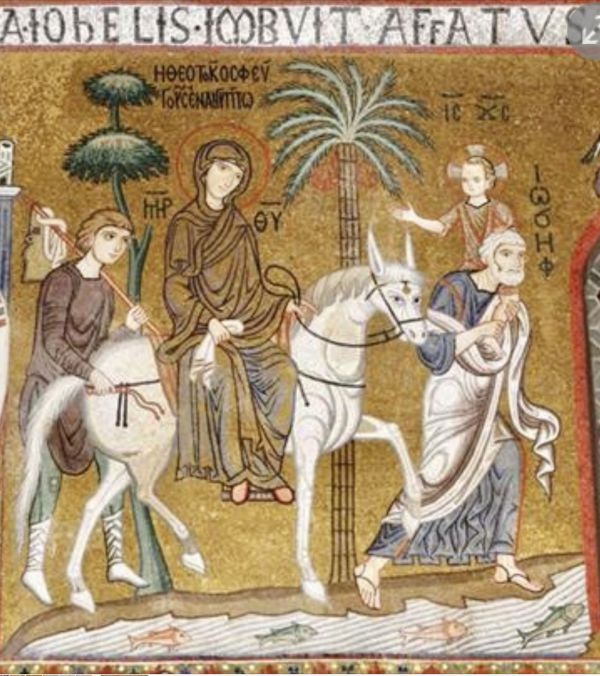The persecution and murder of the Holy Innocents recalls that of the Innocent par excellence: Jesus - and the entire Holy Family of Nazareth, by Herod.
Joseph, warned, "rose up in the night, took the child and his mother and fled into Egypt" (Mt 2:14).
Francis meditated much on the martyrdom of the persecuted Lamb.
Every event reminded him of his sufferings.
The Sources narrate a very significant episode:
"In the diocese of Gubbio, a sheep gave birth to a lamb. There was a ferocious sow there, who, with a rabid bite, killed the innocent creature.
Hearing of the deed, the pitiful father was seized with the deepest compassion and, thinking of the Lamb without blemish, lamented before all at the death of the little lamb.
"Oh alas, brother lamb," he said, "innocent animal, representing Christ to men, cursed be that wicked one who slew thee. And may no one, man or beast, eat his flesh!"
The evil swine immediately fell ill and, after serving three days of suffering for her guilt, finally suffered execution' (FF 1146).
An emblematic fact that explains and brings to mind many things, not least the ferocity of every persecutor (and Herod).
In the "Sacrum Commercium" document contained in the Franciscan Sources, we read:
"But the perfection of all virtues, that is, Our Lady Persecution, to whom, as to me, God has entrusted the kingdom of heaven, was with me in all circumstances, faithful helper, strong co-operator, wise counsellor, and if at times she saw someone grow lukewarm in charity, forget even for a little while heavenly things, become attached in any way to earthly goods, she would immediately raise her voice, shake the army, cover the faces of my children with shame so that they would seek the name of the Lord" (FF 1994).
Clare of Assisi herself, meditating on the penury and danger of the Holy Family of Nazareth, shed hot tears in continuous prayer.
In the Rule, addressed to her daughters she says:
"Have the Spirit of the Lord and his Holy operation [...] and love those who persecute us [...] for the Lord says: Blessed are those who suffer persecution for the sake of justice, for theirs is the kingdom of heaven. Those who persevere to the end will be saved' (FF 2811).
And Francis, in his Testament, writes to his brothers thus:
"Wherever they are not accepted, let them flee to another land to do penance with the blessing of God" (FF 123).
Francis himself, who went to the Sultan of Egypt, Melek-el-Kamel to bring the proclamation of Christ, was persecuted:
"Before he reached the Sultan, his assassins seized him, insulted him, lashed him, and he feared nothing: neither threats, nor torture, nor death; and although invested with the brutal hatred of many, he was received by the Sultan with great honour!" (FF 422).
And to his brothers he taught that boldness in faith that makes one intrepid in adverse situations, because Providence accompanies the innocent who are beaten for Christ, for his Gospel.
"He arose in the night, took the Child and his Mother and fled into Egypt" (Mt 2:14).
Francis could not think back without weeping [...] how destitute and lonely Joseph, Mary and Jesus found themselves at the time of the Child's birth and their flight into Egypt.
"Once, while he was sitting at lunch, a monk reminded him of the poverty of the blessed Virgin and the destitution of Christ her Son. Immediately he rose from the table, burst into sobs of sorrow, and with his face wet with tears he ate the rest of the bread on the bare earth" (FF 788).
Eighth of Christmas. Innocent martyrs (Mt 2:13-18)












